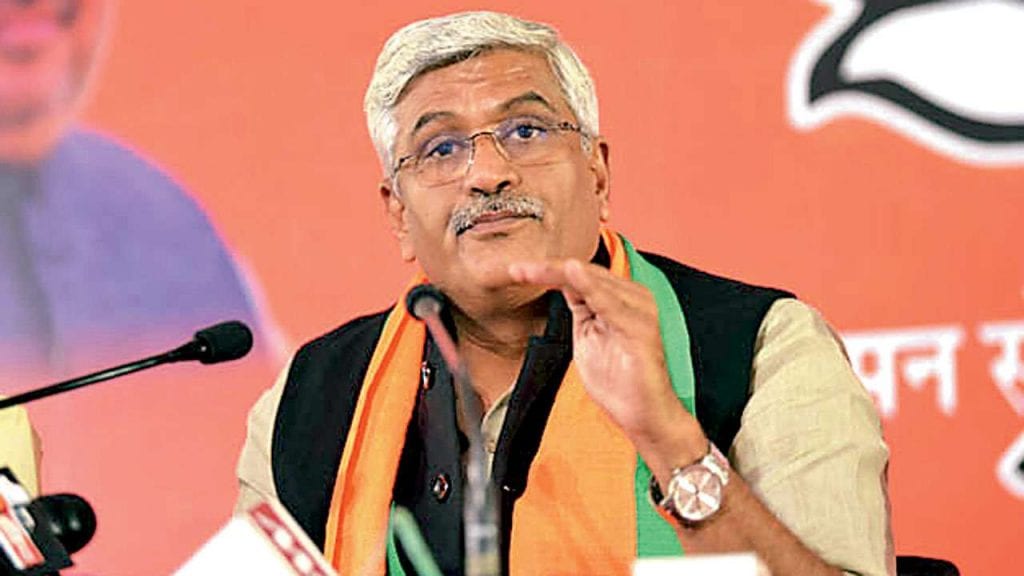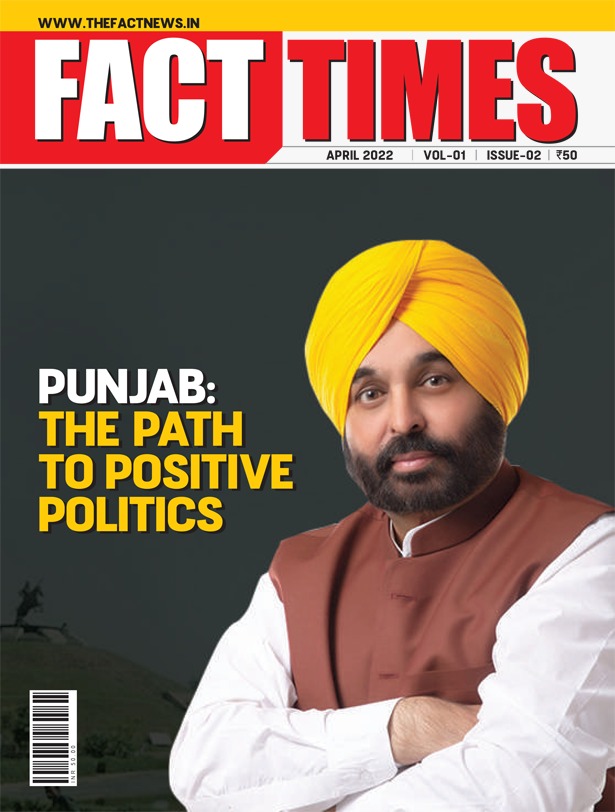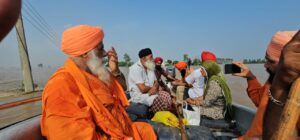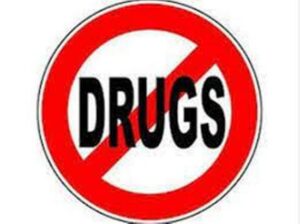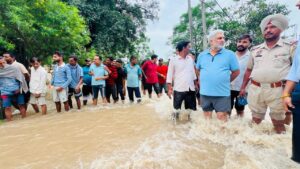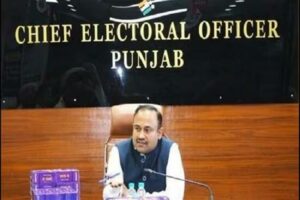National Museum Hosts Solemn Veneration of Sacred Relics on Buddha Purnima
Buddha Jayanti Observed with Reverence, Culture and Creativity
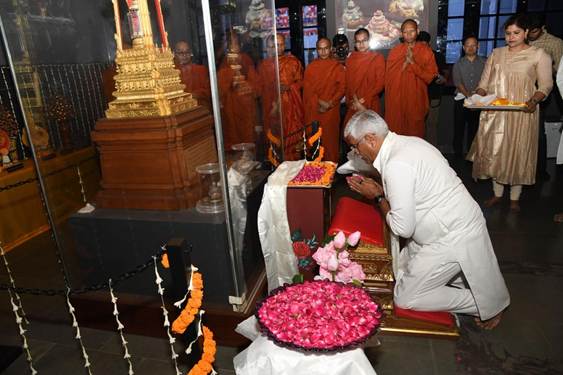
The ceremonial floral offerings were led by Minister of Culture and Tourism Shri Gajendra Singh Shekhawat and Minister of Parliamentary Affairs & Minority Affairs Shri Kiren Rijiju.
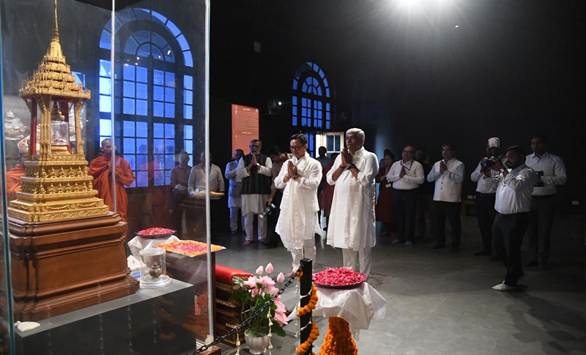
Union Minister Shri Kiren Rijiju, on behalf of Prime Minister Shri Narendra Modi, conveyed greetings to the global Buddhist community and emphasized the relevance of Buddha’s teachings of compassion and harmony in today’s world. He expressed deep satisfaction at witnessing such wide participation and reverence for the Sacred Relics.
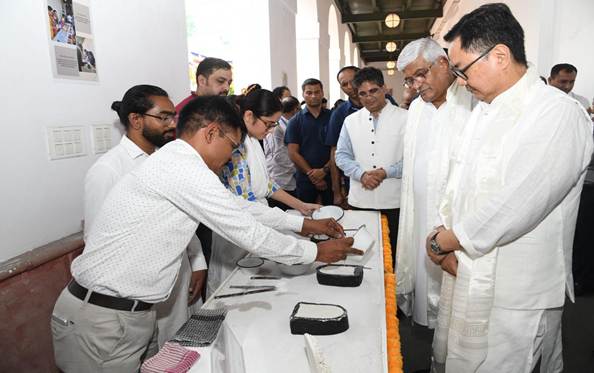
Union Culture Minister Shri Gajendra Singh Shekhawat, focused on one of the steles depicting the Buddha’s life events, particularly the eight great miracles (ashtamahapratiharya). The guests were also intrigued by the iconography of the various Buddhist deities in Mahayana and Vajrayana Buddhism, including the Bodhisattvas, the Crowned Buddha, the Transcendental Buddhas (Panchatathagata), goddesses, and Tributary deities (Ishtadevatas).
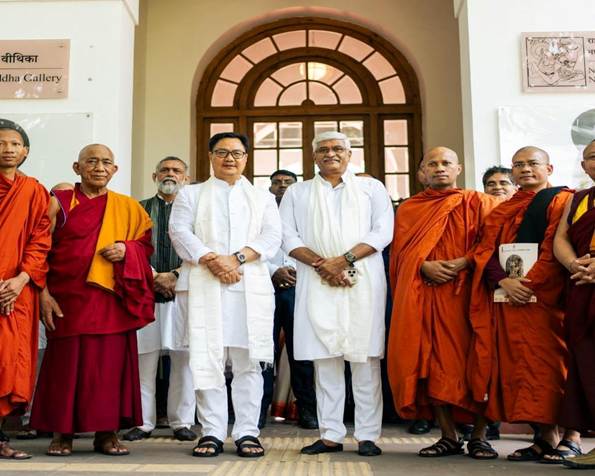
Distinguished dignitaries including Shri Gurmeet Singh Chawla, Director General, National Museum; Shri Abhijit Halder, Director General, International Buddhist Confederation; and Shri Samar Nanda, Joint Secretary, Ministry of Culture, joined venerable monks, scholars, and visitors for the auspicious event.
The Ministers embarked on a guided tour of the Buddha Gallery, exploring the life, teachings, and enduring philosophy of Lord Buddha through a breathtaking collection of art and antiquities. Of special reverence were the Kapilavastu Relics, excavated from Piprahwa, Uttar Pradesh, enshrined in the gallery and central to the day’s celebration.
The exhibition chronicled Buddhism’s evolution from aniconic representations to the early iconic imagery in Mathura and Gandhara, and its stylistic development through Sarnath, Pala, Chola, and Bhaumakara periods. Iconography of Bodhisattvas, Panchatathagatas, and Ishtadevatas in Mahayana and Vajrayana traditions enriched the spiritual and artistic experience.
Adding vibrancy to the solemn occasion was the Thangka Gallery, where exquisite scroll paintings including the Bhavachakra (Wheel of Life) captivated the audience. The Ministers expressed admiration for the depth of symbolism and meditative value reflected in these devotional artworks.
Concluding the celebration, visitors—young and old—engaged in a series of interactive workshops and DIY counters, featuring activities like Prayer Flag Making, Buddhist Iconography Learning, Thangka Colouring Sheets, Selfie Booths, Miniature Buddha Crafting, and Buddhist Film Screenings.
The Buddha Gallery remained open for public viewing throughout the day, reflecting the enduring legacy and spiritual guidance of Lord Buddha on this most sacred day.



